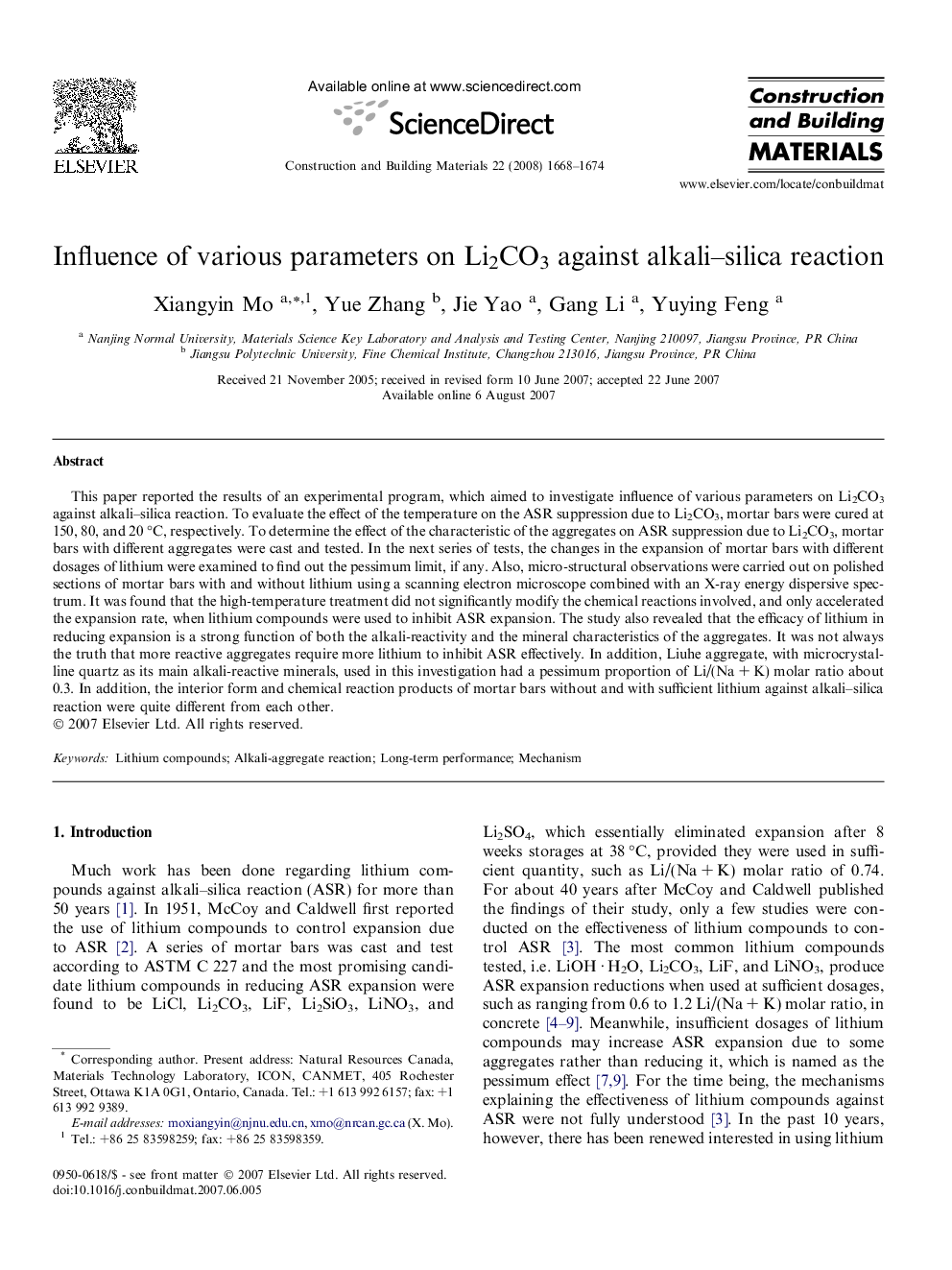| Article ID | Journal | Published Year | Pages | File Type |
|---|---|---|---|---|
| 260828 | Construction and Building Materials | 2008 | 7 Pages |
This paper reported the results of an experimental program, which aimed to investigate influence of various parameters on Li2CO3 against alkali–silica reaction. To evaluate the effect of the temperature on the ASR suppression due to Li2CO3, mortar bars were cured at 150, 80, and 20 °C, respectively. To determine the effect of the characteristic of the aggregates on ASR suppression due to Li2CO3, mortar bars with different aggregates were cast and tested. In the next series of tests, the changes in the expansion of mortar bars with different dosages of lithium were examined to find out the pessimum limit, if any. Also, micro-structural observations were carried out on polished sections of mortar bars with and without lithium using a scanning electron microscope combined with an X-ray energy dispersive spectrum. It was found that the high-temperature treatment did not significantly modify the chemical reactions involved, and only accelerated the expansion rate, when lithium compounds were used to inhibit ASR expansion. The study also revealed that the efficacy of lithium in reducing expansion is a strong function of both the alkali-reactivity and the mineral characteristics of the aggregates. It was not always the truth that more reactive aggregates require more lithium to inhibit ASR effectively. In addition, Liuhe aggregate, with microcrystalline quartz as its main alkali-reactive minerals, used in this investigation had a pessimum proportion of Li/(Na + K) molar ratio about 0.3. In addition, the interior form and chemical reaction products of mortar bars without and with sufficient lithium against alkali–silica reaction were quite different from each other.
